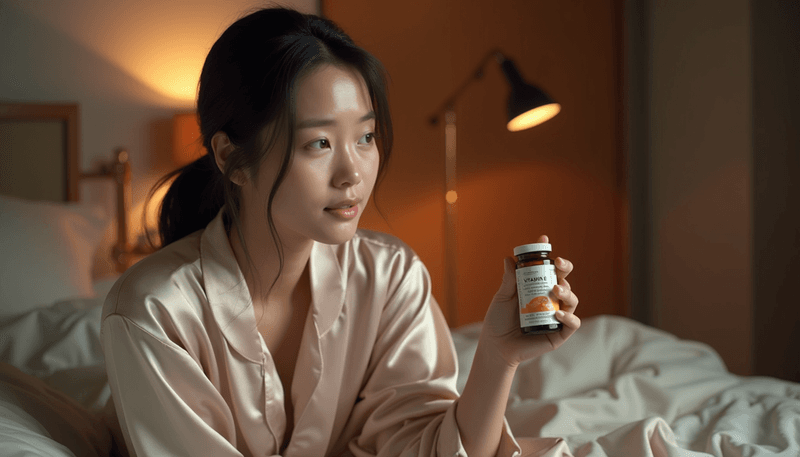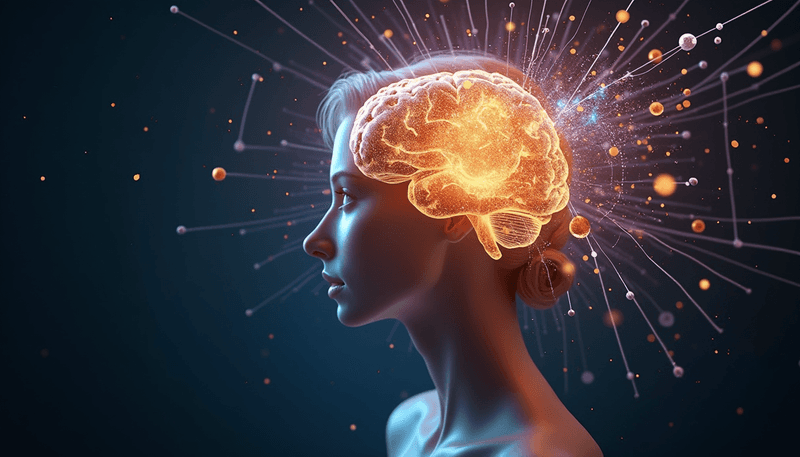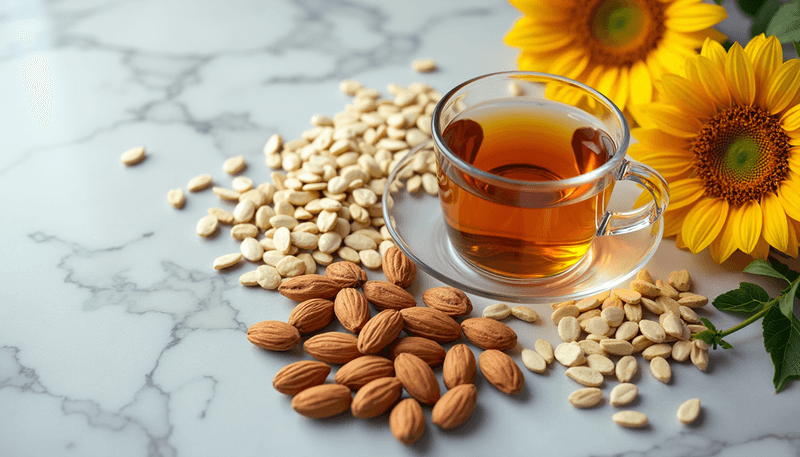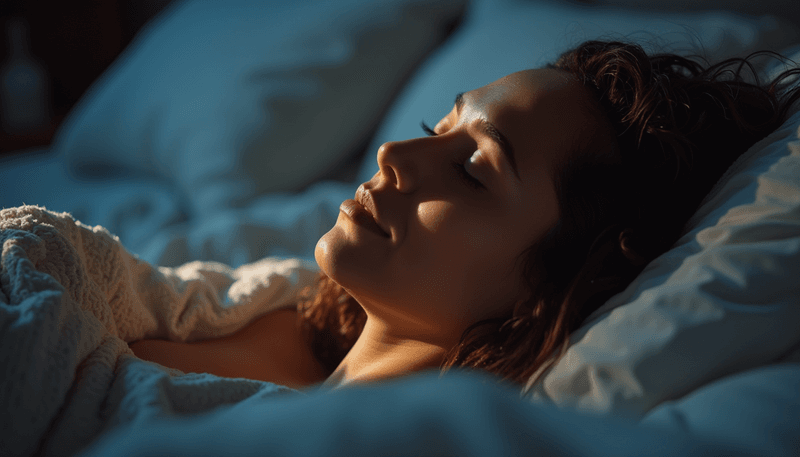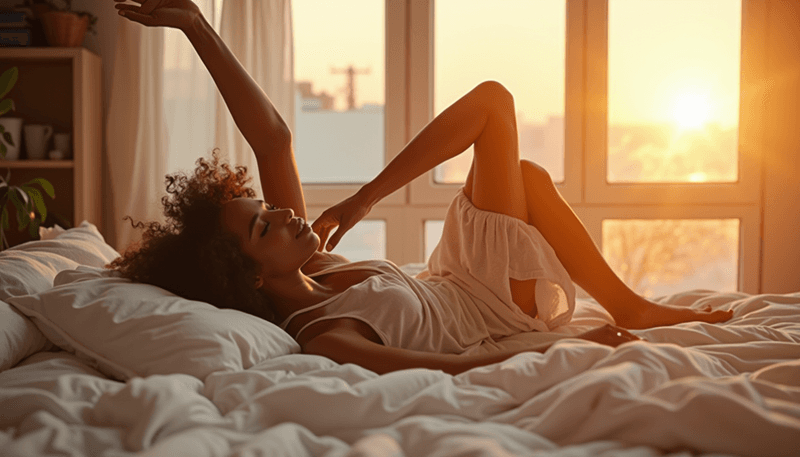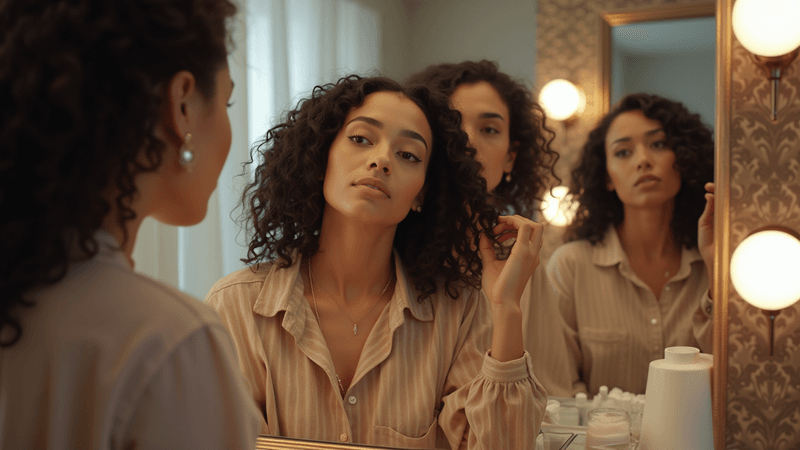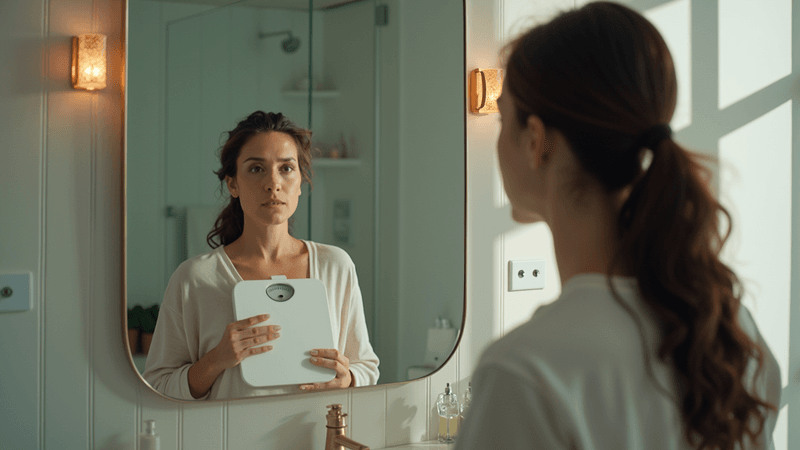Vitamin E May Help You Sleep Better
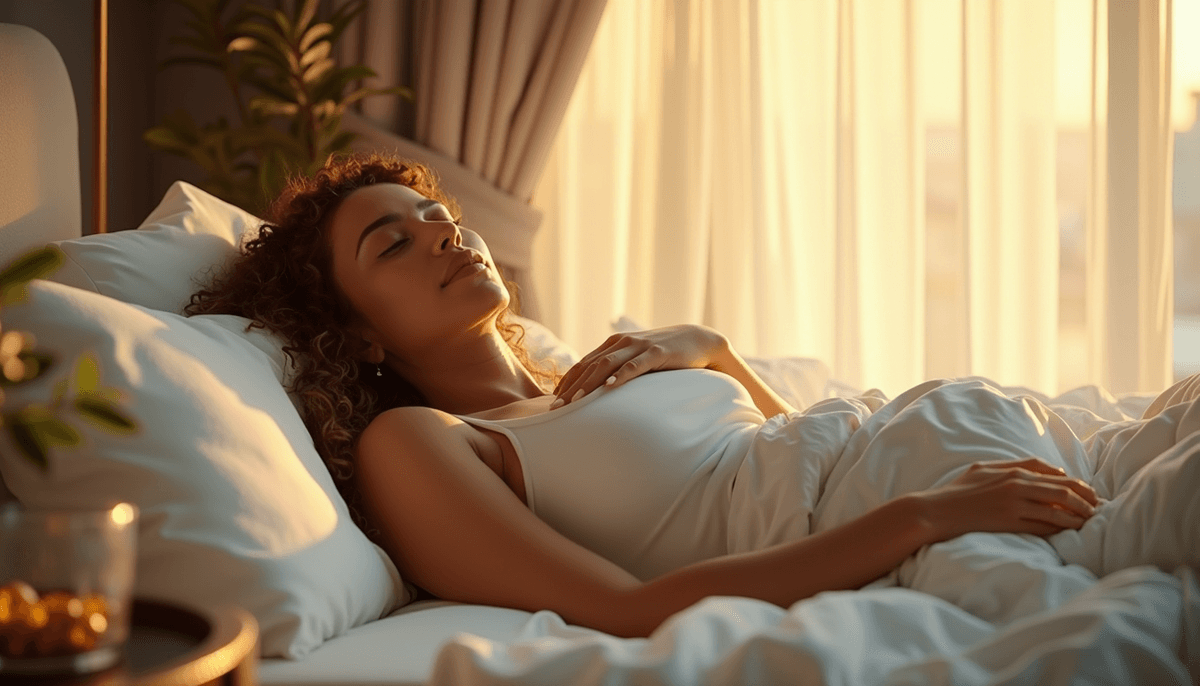
Tossing and turning night after night takes a toll not just on your sleep, but on your entire well-being. If you're among the millions who struggle with sleep issues, particularly during or approaching menopause, an unexpected ally might help you find peaceful rest: vitamin E. A groundbreaking clinical trial reveals vitamin E supplementation could significantly improve sleep quality in women with chronic insomnia.
The Science Behind Vitamin E and Better Sleep
Think of your brain as a highly sophisticated computer that needs protection from overheating. Just as your computer has a cooling system, your brain has natural defenses against damage from oxidative stress - those harmful free radicals that can disrupt normal function. Vitamin E acts like a premium cooling system, protecting your brain cells and potentially helping regulate sleep patterns.
"Have you noticed how a restless night often follows a particularly stressful day? There's a scientific reason for that connection."
In the study, women who took 400 units of mixed tocopherol (vitamin E) daily for one month experienced remarkable improvements in their sleep quality. The evidence suggests vitamin E helps by:
- Reducing oxidative stress in the brain
- Supporting natural sleep-wake cycles
- Decreasing the need for sleep medications
Natural Sleep Support Without Side Effects
One of the most compelling findings was how vitamin E supplementation reduced the need for sleep medications. In the study, the number of women using sleep medications dropped by half in the vitamin E group. This is particularly significant because many sleep medications come with unwanted side effects like morning grogginess or dependency concerns.
Think of it this way: if traditional sleep medications are like using a sledgehammer to hang a picture, vitamin E is more like using a precise nail gun - it gets the job done with less collateral impact.
"What if you could improve your sleep naturally, without worrying about medication side effects?"
Some practical ways to incorporate vitamin E into your sleep routine:
- Take supplements with dinner to maximize absorption
- Combine with sleep-friendly foods rich in vitamin E like almonds or sunflower seeds
- Maintain consistent timing with your supplementation
Understanding Your Sleep Quality
The research used a standardized tool called the Pittsburgh Sleep Quality Index (PSQI) to measure sleep improvements. This tool looks at various aspects of sleep, including:
- How long it takes you to fall asleep
- How many times you wake up
- Overall sleep satisfaction
- Daytime functioning
Women taking vitamin E saw their PSQI scores improve significantly more than those taking a placebo. To put this in perspective, it's like going from watching a movie in standard definition to high definition - the experience is notably better.
"When was the last time you woke up feeling truly refreshed?"
The findings suggest that vitamin E could be particularly beneficial for women approaching or experiencing menopause, when sleep issues often become more prevalent. However, it's important to note that the recommended daily allowance (RDA) for vitamin E is 33.1 IU per day, with a maximum safe dose of 1000 IU daily.
Before starting any supplement regimen, always consult with your healthcare provider, especially if you're:
- Taking blood thinners
- Have liver conditions
- Are planning surgery
- Have other underlying health conditions
In conclusion, this research opens up exciting possibilities for natural sleep support. The evidence suggests that vitamin E supplementation could be a valuable tool in your sleep improvement toolkit, particularly if you're dealing with chronic sleep issues.
Ready to take action? Start by tracking your sleep quality for a week, then talk with your healthcare provider about whether vitamin E supplementation might be right for you.

Olivia Rose Chen-Martinez
Olivia Rose Chen-Martinez is a seasoned health and wellness writer with a focus on women’s health issues, including PCOS, perimenopause, and holistic wellness. With a background in Journalism and Public Health from UC Berkeley, Olivia draws on over 15 years of writing experience to deliver empathetic, research-backed insights. Her work blends personal anecdotes and actionable advice, resonating with readers seeking accessible and trustworthy information. Based in Austin, Texas, Olivia is also a certified yoga instructor and a dedicated advocate for balanced, integrative approaches to women’s health.
